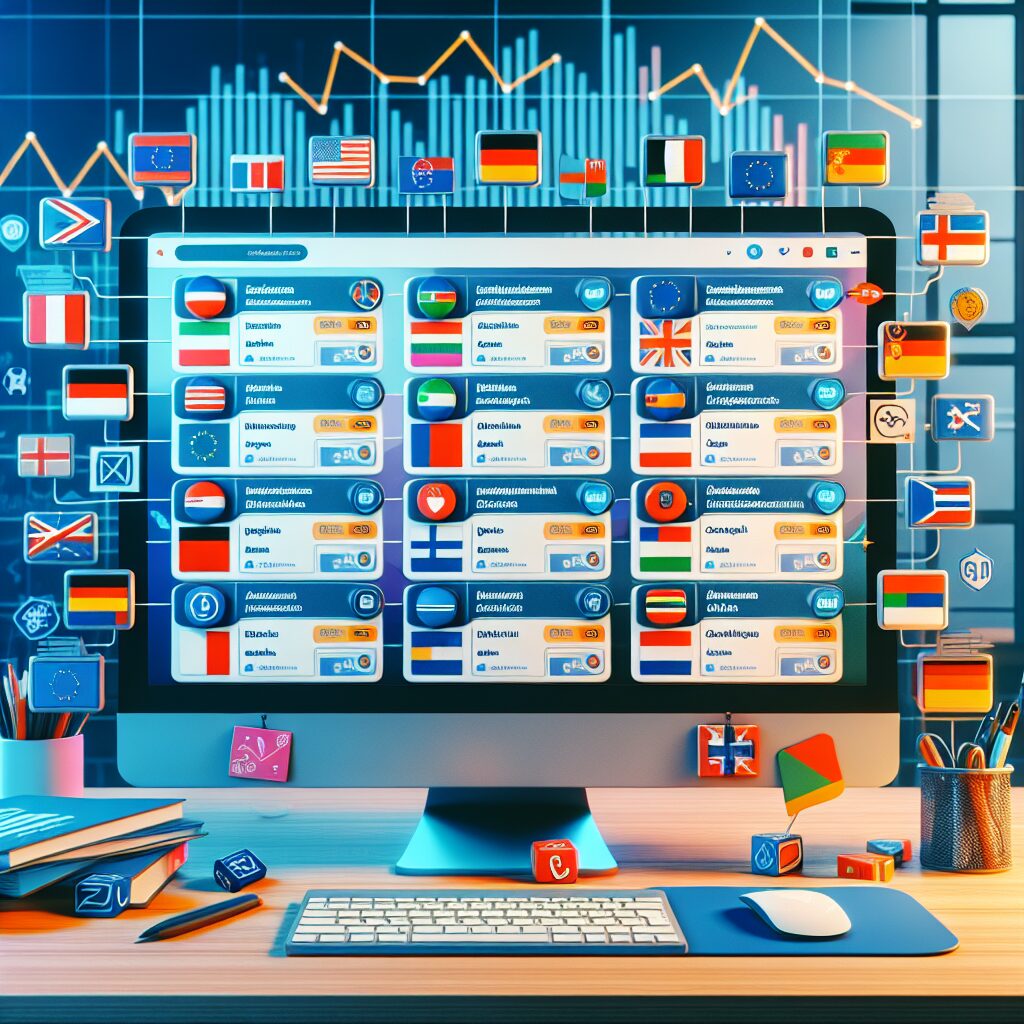The Transformative Influence of AI on Marketing Strategies
The influence of AI in marketing cannot be overstated. It significantly refines strategies by providing insights that were previously unattainable. Marketers no longer rely solely on intuition or historical data; instead, they harness algorithms capable of processing real-time data, ensuring that campaign strategies are both timely and relevant. By utilising predictive analytics, companies can fulfil consumer needs even before the consumers themselves are aware of them, thus enhancing customer satisfaction and driving loyalty. Furthermore, AI facilitates the segmentation of audiences into micro-targets, allowing brands to communicate messages tailored specifically to the needs and preferences of diverse demographic groups.

Enhancing Consumer Insights
AI in marketing provides invaluable insights into consumer behaviour through machine learning algorithms. These systems analyse purchasing patterns and social media interactions, helping companies gain a comprehensive understanding of what drives their customers. For instance, AI can identify trends that indicate shifts in consumer preferences, allowing brands to adapt their marketing strategies fluidly. This adaptability is particularly vital in global marketing, where cultural nuances can greatly influence buying behaviour. As a case study, consider a major cosmetics brand that used AI-driven sentiment analysis on social media to gauge reactions to its product launches in different regions. By analysing the data, the brand could adjust its marketing messages for specific territories, leading to a more targeted approach that resonated well with local audiences.
The Power of Predictive Analytics
Predictive analytics is another area where AI plays a critical role. By leveraging historical data, AI in marketing predicts future consumer behaviour and trends. This empowers marketers to make strategic decisions about inventory, promotional campaigns, and product placements. Imagine an e-commerce platform utilising AI to anticipate which products will surge in popularity during holiday seasons. By effectively stocking these items and launching targeted promotions ahead of time, companies can maximise sales and streamline operational efficiency. Such foresight not only increases revenue but also solidifies brand reliability in the eyes of the consumer.
AI Streamlining Market Research
An often-overlooked aspect of AI in marketing is its role in enhancing market research. Traditional market research methods can be time-consuming and expensive; however, AI streamlines this process by automating data collection and analysis. Tools powered by AI can sift through vast amounts of unstructured data—such as customer reviews, social media posts, and feedback forms—to extract actionable insights. This helps companies gauge general sentiment regarding products or services without the need for extensive surveys or focus groups.
“AI does not replace human intelligence; it enhances it, making research more efficient and less time-intensive.”
Real-Time Feedback Analysis
With AI, brands can gather real-time feedback and rapidly react to customer needs and pain points. For example, an airline company can utilise AI to monitor customer feedback immediately following a flight. This feedback can highlight areas for improvement, allowing the airline to react swiftly to customer complaints and enhance the passenger experience. Consequently, this proactive approach can differentiate the airline in a competitive market, leading to higher customer retention rates.
Automated Surveys and Data Processing
AI assists in automating the survey process, enabling companies to collect valuable feedback effortlessly. AI-driven survey platforms can tailor questions based on previous responses, enhancing the relevance and quality of feedback received. As a result, businesses can conduct market research more efficiently, freeing marketing teams to focus on strategy and execution. For example, if a beverage company is launching a new product, it can use AI to assess the likelihood of success by conducting automated surveys that gauge consumer interest and preferences across various demographics. This level of insight allows companies to launch products with confidence, knowing they’ve collected robust data on potential market reception.
Personalisation at Scale
One of the most notable advantages of AI in marketing is the capability to deliver personalised experiences at scale. AI algorithms analyse consumer data to offer tailored recommendations and targeted messaging. This is especially beneficial in global marketing campaigns where understanding diverse consumer needs is critical. Personalisation not only enhances the customer experience but also drives higher conversion rates. Research shows that consumers are more likely to engage with brands that deliver personalised experiences, making it a crucial component of marketing strategies today.
Dynamic Content Creation
AI technologies can generate tailored content based on user behaviour and preferences. By analysing data from customer interactions, AI can produce dynamic website content, such as product suggestions or targeted promotions that change according to the individual user’s browsing history. For instance, an online retailer might use AI to customise product recommendations in real-time on its homepage based on previous purchases or items viewed by the customer. This level of personalisation creates a seamless shopping experience that keeps consumers engaged and fosters brand loyalty.
Chatbots and Customer Engagement
Chatbots powered by AI have revolutionised customer service. These intelligent systems provide immediate responses to customer inquiries, resolving issues at any time of the day. For global brands, this is critical in maintaining customer satisfaction across various time zones. AI in marketing via chatbots can also gather data from interactions, further enhancing customer insights. Furthermore, chatbots can collect feedback during conversations, enabling brands to refine their strategies and avoid potential pitfalls in their marketing campaigns.
The Future of AI in Global Marketing
As technology continues to evolve, so does the landscape of AI in marketing. The future holds even greater promise as advancements in AI technology emerge, allowing for an even deeper understanding of consumer behaviour. The integration of AI with other technologies like augmented reality (AR) and virtual reality (VR) is on the horizon, opening new avenues for immersive marketing strategies. For instance, imagine a global fashion brand employing AR to create virtual fitting rooms that allow customers to try on clothes digitally—powered by AI algorithms that suggest items based on body measurements and previous purchase history.
Ethical Considerations and Data Privacy
While the benefits of AI in marketing are substantial, it’s essential for businesses to consider ethical implications and data privacy. As companies gather and process more consumer data, they must navigate the fine balance between personalisation and privacy. A transparent approach to consumer data usage builds trust and loyalty. Marketers must prioritise data security and compliance with regulations such as the General Data Protection Regulation (GDPR) to ensure that they maintain consumer confidence while leveraging the power of AI.
Adaptability to Changing Market Conditions
The agility that AI provides is crucial for brands to adapt to continually changing market conditions. With the ability to analyse trends at lightning speed, AI can help marketers pivot their strategies in response to unforeseen events, such as economic downturns or shifts in consumer sentiments due to global events. In these scenarios, businesses that leverage AI in marketing can react quickly, implementing changes to their campaigns to align with current trends and consumer expectations, thereby maintaining relevance in a fast-paced market.
Conclusion: Harnessing AI for Future-Ready Marketing
The role of AI in enhancing global marketing campaigns is undeniably transformative. By adopting AI technologies, brands can significantly elevate their marketing effectiveness, delivering personalised experiences that resonate with consumers worldwide. Emphasising the importance of data-driven decision-making, AI paves the way for future-ready marketing strategies. As companies continue to explore the vast potential of AI, it becomes evident that integrating intelligent technology into marketing campaigns is no longer a luxury but a necessity for businesses aiming for success in the global arena. Explore our AI-driven marketing solutions to elevate your global campaigns. Learn more about our services.
Frequently Asked Questions
How does AI enhance global marketing campaigns?
- AI enhances global marketing campaigns by analyzing large datasets for predicting trends, personalizing content, optimizing ad targeting, and improving customer engagement, leading to more efficient and impactful marketing strategies.








